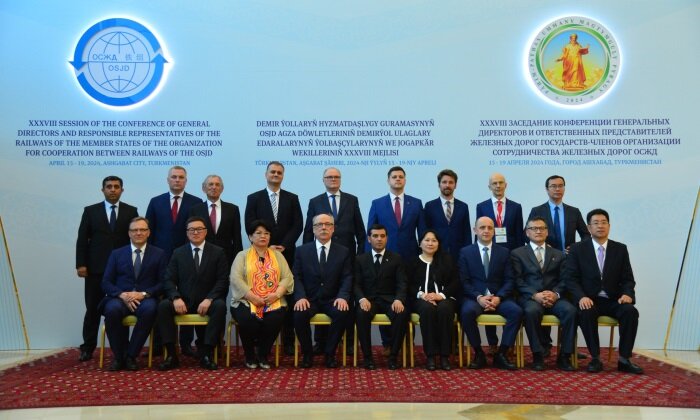 In Turkmenistan, the chemical enterprises engaged in mineral fertilizer production is currently growing in numbers. These products ensure sustainable development of the agricultural sector and enhance the export potential of the country. An analyst for Central Asia Vadim Shagiakhmedov commented on this issue in an interview with CentralAsia.news.
In Turkmenistan, the chemical enterprises engaged in mineral fertilizer production is currently growing in numbers. These products ensure sustainable development of the agricultural sector and enhance the export potential of the country. An analyst for Central Asia Vadim Shagiakhmedov commented on this issue in an interview with CentralAsia.news.
Turkmenistan’s chemical industry supplies the agricultural sector with the best mineral fertilizers. There are the elements called micronutrients which are applied to the soil in small quantities for better plant growth. These are magnesium, sulphur, sodium, boron and others. Turkmenistan has rich reserves of these elements.
Mineral fertilizers are produced from nitrogen, phosphorus and potassium at the chemical plants. Turkmenistan has sufficient resources to expand the production of all types of these useful products.
Carbamide is usually used as a raw material for nitrogen fertilizers. Currently, it is produced at the enterprises in Mary, Tejen and Garabogaz. In the future, it is planned to build more ammonia and carbamide production plants.
One of the chemical elements of great importance for agriculture is phosphorus. The raw materials used to produce fertilizers are minerals called natural phosphates. However, they are insoluble in water and cannot be used directly. Therefore, phosphorites are treated with acid to cause them to become hydrophobic.
Phosphorus fertilizers are produced at the chemical plant in Turkmenabat. A sulfuric acid production plant with an annual capacity of 500,000 tons was built to acidify phosphate rock. The authorities are planning to build a plant with an annual capacity of 300,000 tons of phosphate fertilizers and are negotiating this project with the Japanese companies.
Another important element is potassium that is extracted from sylvinite. Turkmenistan has rich deposits of this mineral. The deposits Garlyk and Garabil in Koytendag Region made it possible to launch potash fertilizer production in the country. The waters of the Garabogaz Bay contain this chemical element. Turkmen scientists developed a method for extracting potassium in this region.
Nitrogen, phosphorus and potassium fertilizers are used in different quantities for agricultural purposes. Once applied, they not only increase crop productivity, but also improve crop quality. For example, fertilizers increase the protein content in grains, the starch content in potatoes and the sugar content in beetroots and grapes.
Chemical treatment increases cold and drought resistance in crop plants. For example, without fertilizers cotton and wheat yields are 7-9 quintals per hectare, and with fertilizers they reach 30-40 quintals per hectare. The application of nitrogen, phosphorus and potassium to the soil allows increasing an agricultural crop yield by 1.5-3 times.
Water supply is one of the main factors contributing to the growth in agriculture and other sectors of the economy. Population growth and socio-economic development have an impact on increasing demand for clean water. The protection and efficient use of water resources are among the most pressing issues of our time.
To achieve these goals, it is crucial to reduce water consumption by the agricultural sector. Projects that envisage using modern methods of water desalination and water purification technologies have a great future. One of the most promising sources of saltwater that can be desalinated for agricultural purposes are aquifers.
Seawater salinity significantly exceeds the sanitary standard. For this reason, methods for obtaining water of normal mineralization through desalination are increasingly being used. The chemical plants are equipped with innovative membrane reverse osmosis units, which have significant technical and economic benefits.
Currently, the reverse osmosis unit in the Avaza national tourism zone, the polymer plant in Kiyanly and the carbamide plant in Garabogaz desalinate water from the Caspian Sea. This method has been tested successfully in several farms in Dashoguz Region.
In accordance with the State Programme for Chemical Science and Technology Development for 2021-2025, Turkmen scientists have developed new methods for disinfecting and purifying water from kaolin, dolomites, zeolites and bentonites using local mineral raw materials.
Furthermore, in accordance with the Social and Economic Development Programme of the President of Turkmenistan for 2022-2028, the authorities are planning to build a plant that will produce mixed mineral fertilizers. This project will play an important role in developing the chemical industry and increasing the production capacity of the chemical plants that produce in-demand import-substituting products.




